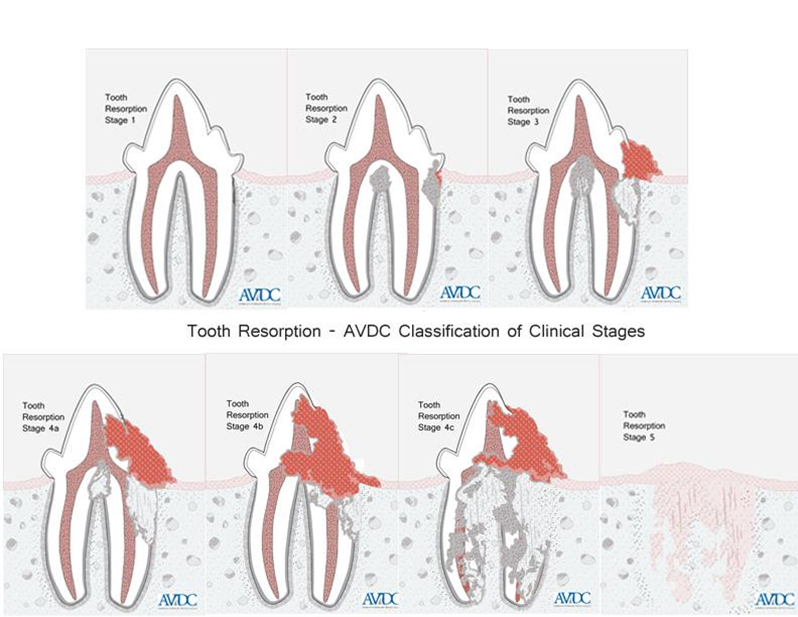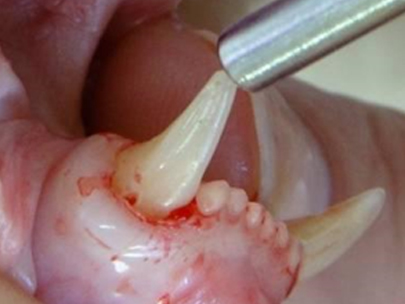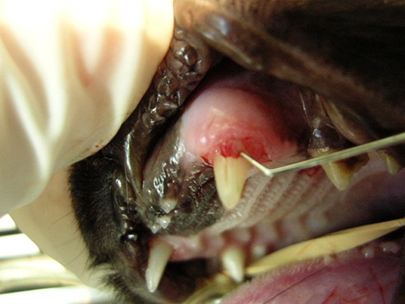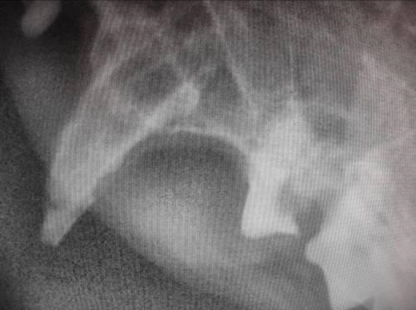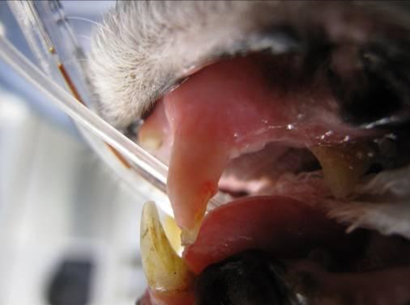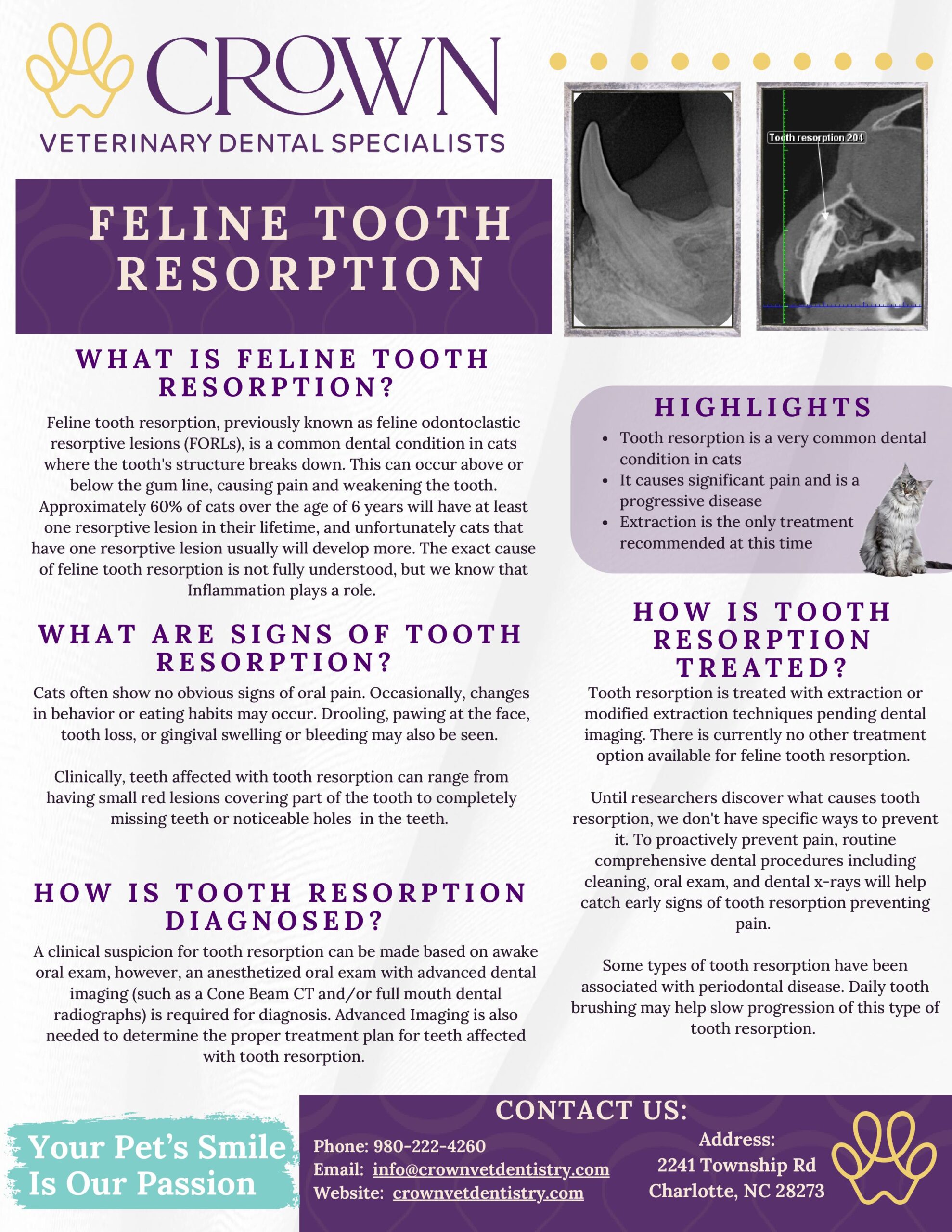Feline Tooth Resorption
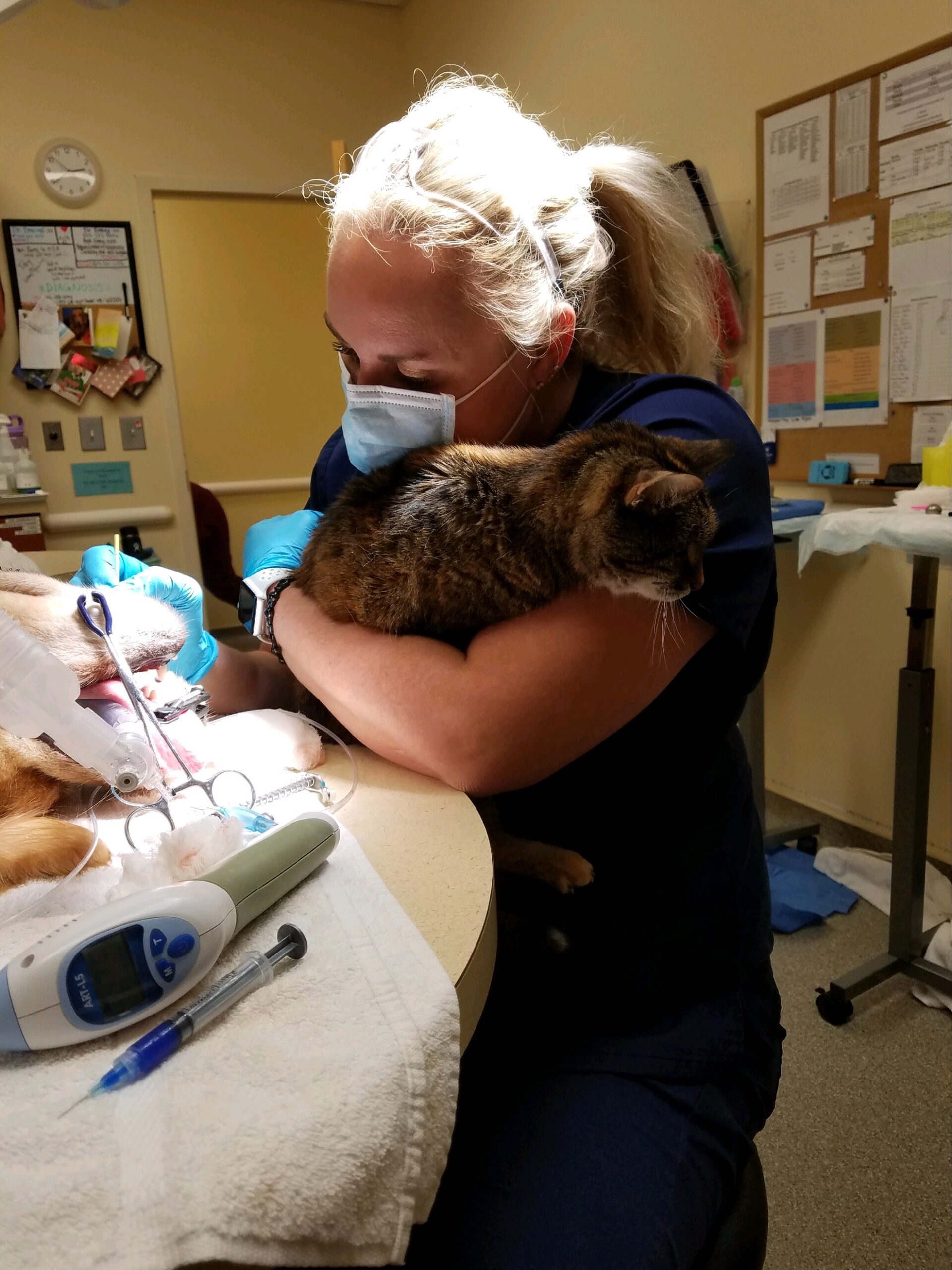
Feline Tooth Resorption
In feline tooth resorption, formerly referred to as feline odontoclastic resorptive lesion (FORL) or cervical line lesion, the enamel layer and then the dentin in a single tooth (or several teeth simultaneously) erodes and eventually becomes irreparably destroyed.
Tooth resorption is a common condition in cats where their body starts to break down and absorb the structures of a tooth. It affects 30-70% of all cats. It starts when “odontoclast” cells begin to attack and “break down” healthy teeth. Any tooth can be affected by tooth resorption, but the mandibular premolars (bottom cheek teeth) are the most commonly affected. Tooth resorption can cause tooth sensitivity and pain. This pain may be seen when some cats will try to eat, and hiss or cry when chewing hurts. Owners may see these cats “run away” from their food bowls, because when they bite down on the kibble or food it may hit the area(s) of tooth resorption and hurt them – but the cat may think it’s the food or the bowl that hurt them and not their tooth.
While the underlying cause of tooth resorption is still unknown, researchers continue to investigate both the process and the cause of tooth resorption. Tooth resorption has not been shown to be related to bacteria in the mouth or the composition of food.
Diets, mineral imbalances, periodontal diseases, vitamin D status, and other factors to identify the cause of feline tooth resorption have all been studied. Unfortunately, a straightforward answer has not been found, though we know that inflammation plays a role in the process.
Studies have shown that cats are more likely to have tooth resorption as they get older. They have also found that cats that are diagnosed with tooth resorption are more likely to have other teeth affected in the future, this is one of many reasons why cats should have a routine dental cleaning and thorough oral exam, including dental x-rays on an annual basis.
The only treatment option for tooth resorption is extraction of the affected tooth/teeth.

